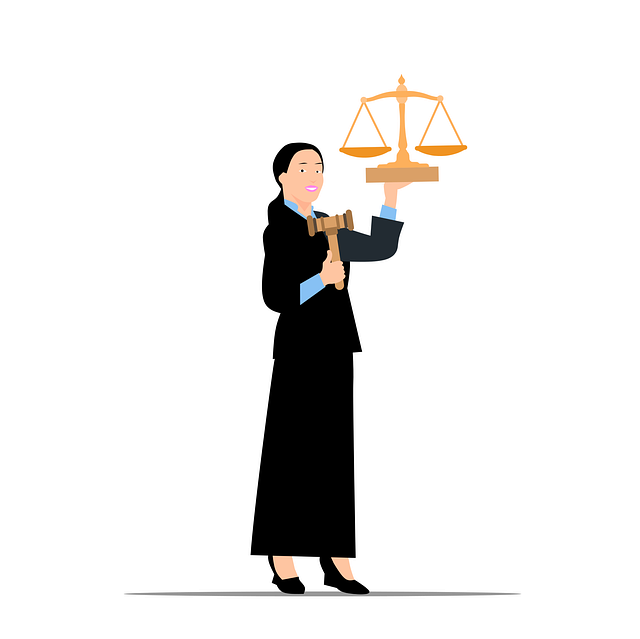In today's digital age, staying alert against evolving securities scams is crucial for investor protection. Recognizing scams like phishing and Ponzi schemes equips investors to navigate the market safely. Witness credibility plays a significant role in securities fraud trials, with legal professionals employing strategies to contest reliability. Key tactics include scrutinizing unusual promises, high-pressure sales, and verifying credentials through regulatory bodies. Reporting suspicious activities is vital, with individuals and corporate clients sharing responsibility. Keeping records and documenting red flags aids legal proceedings against financial crimes. Specialized legal professionals in securities litigation protect investor rights and ensure justice by contesting witness credibility, revealing biases, and scrutinizing evidence. Effective strategies during cross-examination aim to weaken defenses in white-collar and economic crime cases. Proactive measures like staying informed, using secure platforms, and understanding strategies to contest witness credibility in trials can deter scammers and enhance protection against financial crimes.
In the complex world of securities, fraudsters often exploit investors’ trust through sophisticated scams. This article unravels the most prevalent securities scams, offering a comprehensive guide for investors and professionals alike. From understanding red flags to leveraging legal expertise and gathering robust evidence, we explore essential strategies for identifying and reporting fraudulent activities. Furthermore, learn how to protect yourself by implementing preventive measures and contest witness credibility in trials using effective strategies.
- Understanding Common Securities Scams: A Comprehensive Overview
- Strategies for Identifying and Reporting Fraudulent Activities
- The Role of Legal Expertise in Navigating Securities Litigation
- Building a Strong Case: Evidence and Testimony in Securities Trials
- Protecting Yourself: Preventive Measures to Avoid Becoming a Victim
Understanding Common Securities Scams: A Comprehensive Overview
In today’s financial landscape, understanding common securities scams is a crucial strategy to protect investors and safeguard their hard-earned money. These scams evolve with technological advancements, making it essential for individuals to stay informed. From phishing schemes posing as legitimate investment opportunities to complex Ponzi structures, con artists employ various tactics to lure unsuspecting victims. By recognizing these patterns, investors can better navigate the market and avoid potential pitfalls.
One notable aspect of securities fraud cases is the role of witnesses in providing credible testimony. In high-stakes white collar defense cases, especially those involving philanthropic and political communities, the credibility of witnesses becomes a critical factor. Strategies to contest witness reliability are essential tools for legal professionals, helping them uncover inconsistencies and biases that might affect the outcome of trials. Understanding these methods enhances the overall integrity of legal proceedings in securities-related matters.
Strategies for Identifying and Reporting Fraudulent Activities
When it comes to identifying and reporting securities scams, a keen eye for detail is crucial. Investors should scrutinize unusual investment promises, sudden get-rich-quick schemes, or high-pressure sales tactics. Understanding market trends and legitimate investment patterns can help differentiate genuine opportunities from fraudulent ones. Additionally, verifying the credentials of those promoting investments and checking with regulatory bodies are essential strategies to contest witness credibility in trials involving securities fraud.
Reporting fraudulent activities is a collective responsibility. Corporate and individual clients alike play a vital role in combating white-collar and economic crimes. By reporting suspicious activities, individuals can contribute to achieving extraordinary results in the fight against securities scams. Keep records of interactions and document any red flags encountered during investment discussions. This evidence can be invaluable when dealing with legal proceedings related to financial crimes, ensuring that justice is served.
The Role of Legal Expertise in Navigating Securities Litigation
In the complex landscape of securities litigation, legal expertise plays a pivotal role in navigating through intricate web of regulations and legal procedures. Lawyers with profound knowledge of financial markets and regulatory frameworks are instrumental in protecting the rights of investors and ensuring justice. One crucial aspect they employ is developing robust strategies to contest witness credibility during trials. These strategies not only challenge the accuracy of testimonies but also expose potential inconsistencies or biases, which can significantly sway the outcome of cases across the country.
The role of legal experts extends beyond mere argumentation; they meticulously examine evidence, identify weaknesses in witness accounts, and present compelling counter-narratives. Their expertise in white collar defense enables them to navigate complex financial transactions and interpret ambiguous data points. By employing these tactics, they safeguard their clients’ interests and help uncover the truth behind securities scams, ensuring a fair and impartial legal process.
Building a Strong Case: Evidence and Testimony in Securities Trials
Building a strong case in securities trials hinges on robust evidence and credible testimony. Collect detailed financial records, communication logs, and any digital trails that might incriminate wrongdoers. Expert witnesses can provide insights into complex financial schemes, enhancing the prosecution’s argument.
During cross-examination, employing strategic techniques to contest witness credibility becomes pivotal. Attorneys can scrutinize inconsistencies in statements, challenge motivations for cooperation, and highlight potential biases. These methods, applied throughout all stages of the investigative and enforcement process, aim to weaken defenses in white collar and economic crimes cases. The ultimate goal is to secure a complete dismissal of all charges if the evidence and testimonies fail to meet the required legal standards.
Protecting Yourself: Preventive Measures to Avoid Becoming a Victim
Protecting yourself from securities scams is a proactive step that can save you from significant financial losses and legal troubles. One of the first lines of defense is staying informed and educated about common scam tactics. Keep yourself updated on recent trends in investment fraud by following reliable sources and staying vigilant.
Additionally, implementing robust security measures when conducting transactions online is essential. Use secure platforms for all financial activities, employ strong and unique passwords, and enable two-factor authentication where available. Be cautious of unsolicited emails or calls regarding investments, and never provide personal or financial details unless you’ve independently verified the legitimacy of the requestor. Remember, legitimate financial institutions will not pressure you into making immediate decisions or ask for sensitive information over unverified communication channels. Strategies to contest witness credibility in trials, particularly focusing on white-collar and economic crimes, can also help deter would-be scammers, as they may be less likely to target individuals with a strong understanding of their rights and the legal process.
In navigating the complex world of securities, understanding common scams and employing strategic methods for identification and reporting are pivotal. Legal expertise plays a crucial role in managing securities litigation, while robust evidence and credible testimony are essential for building strong cases. Ultimately, equipping oneself with preventive measures is the best defense against becoming a victim, ensuring investors can make informed decisions and protect their interests effectively. Additionally, refining strategies to contest witness credibility in trials enhances the integrity of financial markets, fostering a safer environment for all participants.






